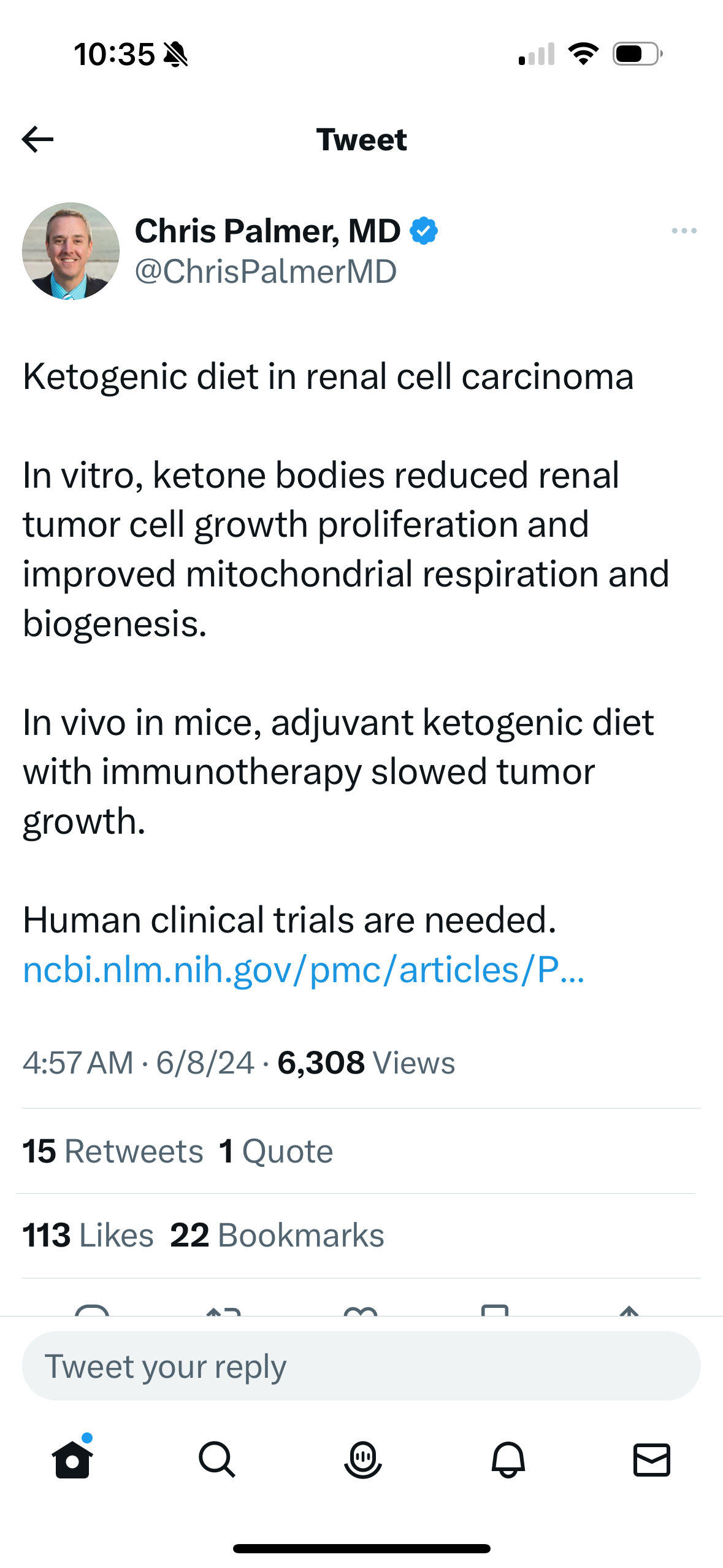Thanks for this, @Sabrina1980 — much appreciated.
Just to make sure there is no animosity in the conversation: I don’t know what the answer to “what treatment for cancer is beat”. And I DEFINITELY don’t know the answer to “what treatment for longevity is best”. I hoped to share the articles at the beginning of this thread (which was unfortunately overrun by tribalism) which I had shared with a doctor friend of mine who has advanced stage cancer (which I found myself when I had stage iii cancer). I am also NOTR promoting the keto diet: I have a “special use case” and from my research I thought this was something ai could do longish term to help make me less attractive to metastasis.
That having been said, I am not a professional oncologist (I did work in an oncology/biochem/polymerase lab for three years, including winning a competitive research fellowship, but whatt I worked on really wasn’t anything to do with actual oncoloflgy, I was young and even stupider than I am now, and it was a REALLY long time ago — the big thing was applying p553 to every model).
The best cancer prevention diet is to eat green leafy vegetables ,fruits , turmeric, high fiber diet ; foods that are pro apoptosis , and anti angiogenesis
So what I understand of the researchers I posted is a different viewpoint than what I think is the current standard if care which has been relatively ineffective. Their work suggests this low glucose blood level diet combined with ketones weakens cancer cells in general (mostly?) through starving their fermentation metabolism (I think). They are saying that this is the largest impact on cancers, more than normal HGH or IGF-1 promotion, but I don’t really know. This means if you had a high vegetable diet as you suggested — even vegan — and made sure it was low carb and supplemented with ketones, this fits right into what their research is suggesting. Does meat significantly impact IGF-1 versus plant protein, or is it a small effect? I am also confused by much of this because I know high HGH promotes cancer but there must be a u or j shaped curve because generally metabolically healthy don’t seem to get cancer as often as metabolically unhealthy people. And Greg Fahy uses HGH to promote immune function to have it fight cancer. So this perplexes me on what to do:m.
So you definitely may be correct, but this may be separate, or they may be saying the ketosis is a much larger impact.
Seyfried attracted me to this idea because the standard of care seems less effective when you actually have cancer and Seyfried has been doing this for years with supposedly amazing results so there may be something here, and that’s why I started this. I know of D’Agastino’s work just from keto performance enhancement but I didn’t know he separately was thinking about this.
This was a very wordy was to say “I have zero idea”. And I don’t seek to spread misinformation. )And I am NOT an evangelist.) But we’re deep thinking biohackers in this forum. And there seems to be some interesting results to think about here, particularly if you have/had cancer
I appreciate the discussion.

